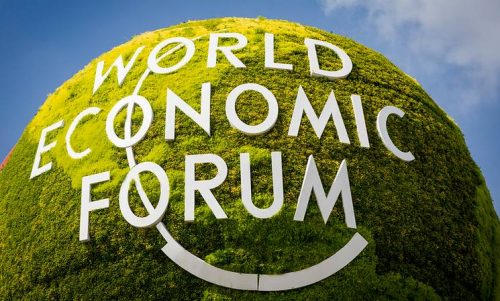Global & Africa Travel News
Leaders Urged to Shape Sustainable and Inclusive Future Together
Geneva, Switzerland, September 28, 2021 / TRAVELINDEX / The World Economic Forum’s fifth Sustainable Development Impact Summit was brought to a close today by Børge Brende, President of the World Economic Forum. Calling climate change “one of the most urgent challenges of our lifetime” he thanked the more than 2,300 participants for their work to move projects forward across the more than 100 sessions.
“Exiting the pandemic stronger than we entered it can only happen if stakeholders work together,” he said. “Important strides were made these past four days that give me so much hope – it has truly been an impact summit. I am confident that if we continue to raise our ambition and work together, we can shape a more inclusive and sustainable future.”
In his closing remarks, Brende spoke of the need to share know-how, partner on innovation and coordinate on advancing global priorities.
COP26 in Glasgow and the World Economic Forum Annual Meeting 2022 in Davos-Klosters will be focal points for leaders to show impact and demonstrate how they are moving towards global goals.
The Sustainable Development Impact Summit was designed around four pillars: Revitalizing Economies; Advancing an Inclusive Recovery; Scaling up Climate Action; and Shaping Future Food Systems. Here are the key outcomes:
– A little over two years ago, the Forum committed to developing a set of universal environmental, social and governance (ESG) metrics to help companies practice stakeholder capitalism. Over 50 companies are now using these Stakeholder Capitalism Metrics and over 100 support the initiative worldwide.
– The EDISON Alliance committed to building affordable digital access to healthcare, finance and education for 1 billion people by 2025.
– Airlines, airports, fuel suppliers and other industry stakeholders aim for 10% sustainable aviation fuel by 2030 to help one of the most carbon-heavy sectors get to net-zero by 2050.
– Some 150 organizations and industry leaders signed a Call to Action urging governments to enable a full decarbonization of shipping by 2050.
– The Partnership for Global LGBTI Equality launched a self-assessment tool to help companies identify actions to meet UN standards of conduct.
– The Forum’s Partnering for Racial Justice in Business Coalition now comprises 60 organizations, representing over 7 million employees.
– Alongside the first ever UN Food Systems Summit, the Forum’s Food Systems team announced the Digital Food Systems Coalition, the 100 Million Farmers platform to help develop a more inclusive and sustainable food system for all and co-hosted the innovation track with Mercy Corps.
– Over 20 companies have pledged to conserve, restore and grow more than 2.5 billion trees in over 40 countries as part of the 1t.org global pledge process.
– The Forum’s Scale360 project, which creates products with multiple lifecycles instead of single use, expanded from two to 20 countries.
– Cambodia established a Closing the Skills Gap Accelerator, joining a global network of 11 countries addressing skills gaps and the future of work.
– Finland joined the Global Learning Network to contribute its expertise in closing education gaps.
– The Food Action Alliance has expanded to 20 countries and is working on local and national flagships that improve sustainability and inclusivity.
– The Forum’s innovation platform, UpLink, announced that its innovators helped advance projects that captured 39 million tonnes of greenhouse gas emissions, brought safe drinking water to 2.7 million people and created 133,000 jobs. It also announced four new cohorts and two new challenges.
– The Forum’s Friends of Ocean Action launched the Blue Food Partnership and two other initiatives to strengthen ocean resilience.
– The Mangroves Working Group will conserve and restore these forests by building a “blue” carbon market.
– Pakistan became the latest country to step-up in the fight against plastic pollution, joining Indonesia, Ghana, Nigeria and Viet Nam in the Global Plastic Action Partnership.
– The New Generation Industry Leaders community will transform perceptions around industrial companies and inspire new generations to seek work in industrial sectors.
– Cities have a new free resource to help them reduce emissions faster and make urban life more climate-friendly, courtesy of the Net-Zero Carbon Cities project.
– The new Global Health Equity Network will work across public and private sectors to boost access to health and well-being initiatives.
– The Forum played a critical role with the Race to Zero Coalition in mobilizing almost 30% of the health sector to commit to net-zero targets by 2050.
– The Lung Ambition Alliance and the Forum launched the Global Lung Cancer Collaboration to eliminate the disease and ensure the future sustainability of health systems.
Sustainable Development Impact Summit
The meeting brought together global leaders from business, government, and civil society under the theme, Shaping an Equitable, Inclusive and Sustainable Recovery. It focused on new technologies, policies and partnerships to advance cooperation, accelerate progress and highlight tangible solutions to our global challenges.
